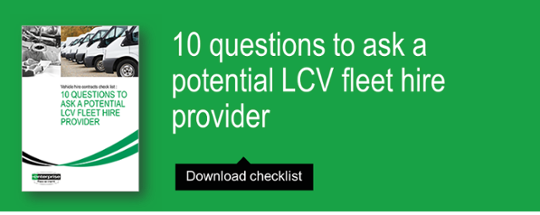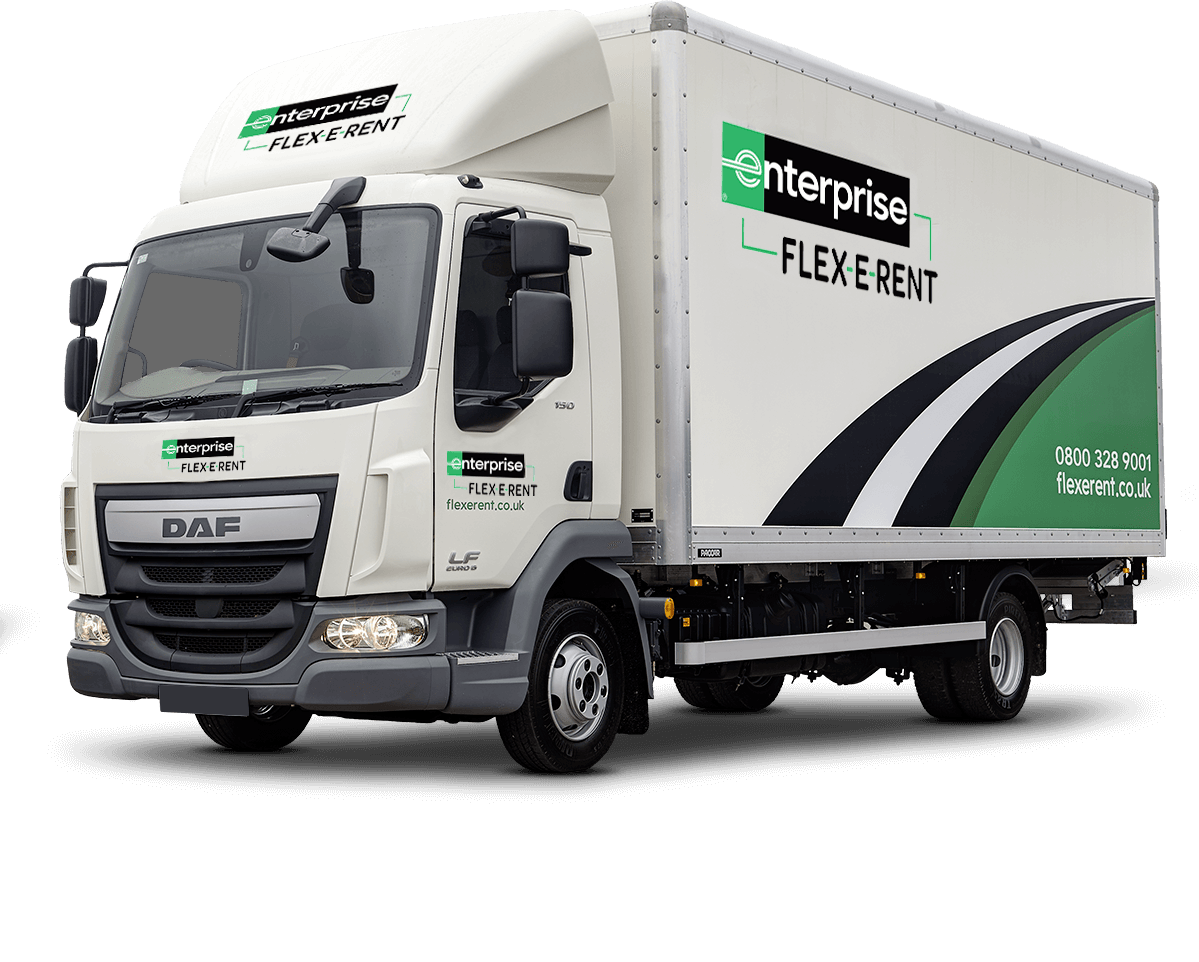Business van hire presents enormous advantages to fleet managers, compared to buying their vehicles outright.
Hiring vehicles means you don’t lock up your capital in vehicles and they remain on your lease provider’s balance sheet, not yours.
You can also enjoy fixed, predictable and generally lower monthly costs, a guarantee you’ll always be driving new (or close to new) vans and have no worries about being hit by depreciation costs a few years down the line.
For those of you considering LCV hire, you’ll want to choose the right kind of leasing option for you. Broadly speaking, you have three main options which we’ll cover in this bog. They are:
- Finance leasing
- Contract hire
- Flexible hire
We’ll talk you through the pros and cons of each of the types of van leasing so you can make the best choice for your business.
Finance leasing
Finance leasing allows you to hire vans for a fixed period - normally three or four years. Essentially, you make agreed monthly payment during this time, and at the end of the lease period your options depend on which of the two main types of lease you have chosen. These are closed-end leases or open end leases.
Closed-end leases place you under no obligation to purchase the vehicle at the end of the period, meaning you don’t have to shoulder the cost of a depreciating vehicle.
Whereas with open-end leases - also known as ‘balloon’ leases - you must pay a final ‘balloon’ payment at the end of the lease period, at which point you become the owner of the vehicle.
Whichever option you choose, there are benefits to both kind of arrangements, notably:
- Fixed monthly costs - you can predict your outgoings over the lease period.
- Fixed interest rates - payment are not vulnerable to fluctuating interest rates.
- No tied-up capital - you don’t sink large amounts of capital in vehicle purchase.
- Tax benefits - you can claim rental allowance against tax.
As you can see, the benefits of leasing in this way are primarily financial. However, the downside to financial leases is that they often subject to certain restrictions. For example they may have very low mileage allowances to preserve the value of the vehicle, and you may have to pay expensive supplements if you exceed them. You need to think about if the allowed mileage is enough to cover your vehicle, based on how regularly you’ll use it.
Additionally, you may be liable for wear and tear on a vehicle or face expensive deposits, depending on which lease package you choose.
If you’ve chosen a open-end lease, remember that you may face a substantial balloon payment at the end of the lease term. This can damage your cashflow and saddle you with a vehicle that has significantly depreciated in value. Having said that, your balloon payment can be offset against tax.
With an close-end lease, you have no asset at the end of the term but on the plus side, you can walk away from a vehicle that’s dropping in value and utility and opt for a new agreement.
Contract hire
Contract hire is the most common form of van leasing in today’s marketplace. It’s similar to finance hire in that you can have the use of an LCV for a fixed monthly cost over an agreed period of time (commonly three years). However, unlike finance hire, you do not have the option to buy the vehicle at the end of the lease term.
There are a number of advantages to contract hire, one being lower monthly payments. Many contract hire agreements are cheaper than finance hire deals, which is good for cashflow. You also won’t get stung for a balloon payment at the end of the hire term - you can just walk away and source a new vehicle elsewhere.
Another bonus is that you won’t need to pay a substantial deposit and you’ll never have to drive a vehicle that’s older than the contract term - great for both reliability and company prestige.
Equally advantageous is that you don’t have to tie up capital, aren’t at the mercy of fluctuating interest rates and don’t have to worry about depreciating assets.
However, there are some downsides to contract hire, of course. The main one is the lack of flexibility - you’ll need to predict how many vans you need over a given period. While this might not be a problem for some businesses, it could cause problems for those who experience seasonal fluctuations in van use.
Flexible hire
Flexible hire works in exactly the same way as contract hire, except you are free to terminate the agreement at short notice - often as little as 14 days’ notice.
This brings you all the benefits of contract hire, except cost. Because you don’t commit to a fixed rental term, the lease provider will charge a higher monthly cost to compensate for the risk that you might return the vehicle.
However, there are a whole host of benefits of a flexible contract, which can be valuable to your business if you can’t predict your future vehicle requirements, have seasonal fluctuations or need to fulfil short-term contracts.
With flexible hire, you can return your vehicles when you like, without incurring a penalty charge. You can also add to your fleet at specific times of the year, with liveried, equipped vehicles as required or help fill the gaps between contracts.
Flexible hire is also a good option to supplement an existing fleet of vehicles on contract hire - if you get them from the same provider, all flexible and contract hire vehicles will be covered by the same maintenance and repair services.
As a business in need of vans you’ve probably been surprised by the sheer amount of providers out there - not to mention the many different hire packages they offer. It’s vital to consider your options thoroughly before committing to a commercial vehicle hire package. That’s why we’ve put together our guide:
This will arm you with the questions you need to ask to find out which leasing plan is best suited for you and how to pick the best supplier.






